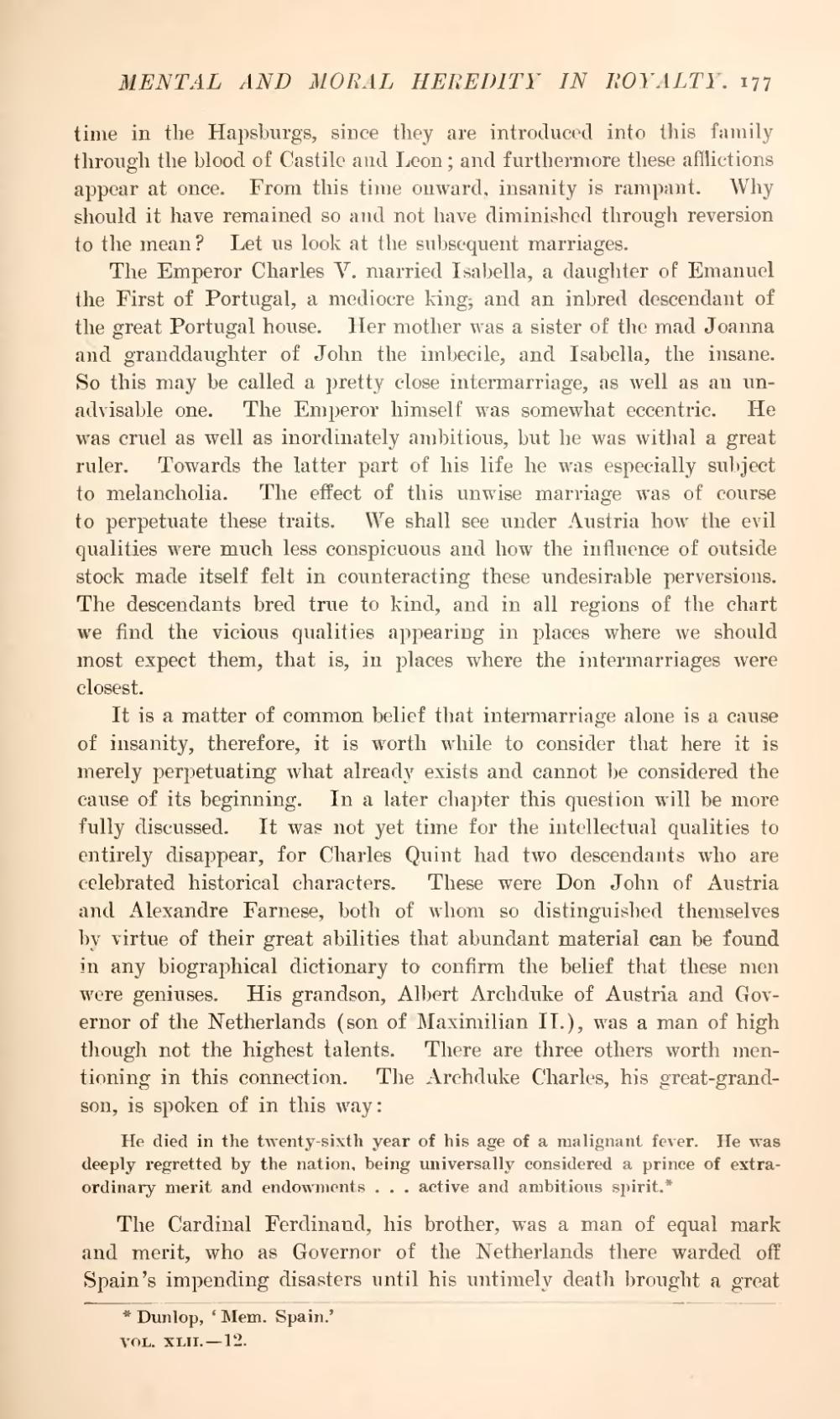time in the Hapsburgs, since they are introduced into this family through the blood of Castile and Leon; and furthermore these afflictions appear at once. From this time onward, insanity is rampant. Why should it have remained so and not have diminished through reversion to the mean? Let us look at the subsequent marriages.
The Emperor Charles V. married Isabella, a daughter of Emanuel the First of Portugal, a mediocre king; and an inbred descendant of the great Portugal house. Her mother was a sister of the mad Joanna and granddaughter of John the imbecile, and Isabella, the insane. So this may be called a pretty close intermarriage, as well as an unadvisable one. The Emperor himself was somewhat eccentric. He was cruel as well as inordinately ambitious, but he was withal a great ruler. Towards the latter part of his life he was especially subject to melancholia. The effect of this unwise marriage was of course to perpetuate these traits. We shall see under Austria how the evil qualities were much less conspicuous and how the influence of outside stock made itself felt in counteracting these undesirable perversions. The descendants bred true to kind, and in all regions of the chart we find the vicious qualities appearing in places where we should most expect them, that is, in places where the intermarriages were closest.
It is a matter of common belief that intermarriage alone is a cause of insanity, therefore, it is worth while to consider that here it is merely perpetuating what already exists and cannot be considered the cause of its beginning. In a later chapter this question will be more fully discussed. It was not yet time for the intellectual qualities to entirely disappear, for Charles Quint had two descendants who are celebrated historical characters. These were Don John of Austria and Alexandre Farnese, both of whom so distinguished themselves by virtue of their great abilities that abundant material can be found in any biographical dictionary to confirm the belief that these men were geniuses. His grandson, Albert Archduke of Austria and Governor of the Netherlands (son of Maximilian II.), was a man of high though not the highest talents. There are three others worth mentioning in this connection. The Archduke Charles, his great-grandson, is spoken of in this way:
The Cardinal Ferdinand, his brother, was a man of equal mark and merit, who as Governor of the Netherlands there warded off Spain's impending disasters until his untimely death brought a great
- ↑ Dunlop, 'Mem. Spain.'
